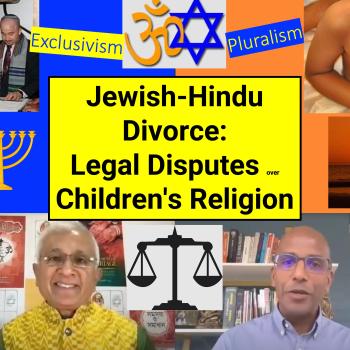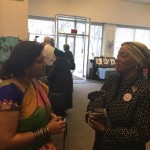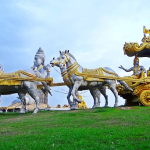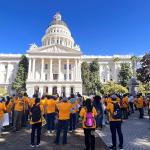In recent weeks, several high-profile religious leaders—including Pope Francis, Billy Graham, and Russell Moore—have expressed concern that churches can get so involved with controversial social and political causes that other important aspects of ministry are neglected, relationships suffer, and basic common teachings are overshadowed. Is it time for faith leaders to tone down the activism and pull back from engaging in contentious “culture wars”?
As a Board member of the the Hindu American Foundation, a 10-year old advocacy organization, and a community activist, I am wary of saying yes, that high profile religious leaders should tone down the activism. After all, we at the HAF have engaged or referenced high profile religious leaders – all falling within the umbrella of Hinduism – who bring a diverse set of perspectives to the table. We sought their guidance on issues such as human rights abuses, caste-based discrimination, and social justice issues. Part of the mission of the Foundation is to ”educate the public about Hinduism, speak out about issues affecting Hindus worldwide, and build bridges with institutions and individuals whose work aligns with HAF’s objectives.” Hindu religious leaders – past and/or present – are critical to each of us at the Foundation in our personal lives, and often provide inspiration to the advocacy work we do. We focus on human and civil rights, public policy, media, academia, and interfaith relations. The positions we take are inclusive, seeking to provide an ethos that promotes human dignity, mutual respect, and pluralism.
And it is this word “pluralism” that makes me hesitate, and actually say “no.” As long as a leader can bring a perspective that incorporates a [political] vision in which two or more states, groups, principles, sources of authority, etc., can coexist, perhaps faith leaders can be politically engaged. They should be able to support a political or social cause that allows for another’s voice to be valid; where the various positions are choices that people make. Freedom to choose is something that is intrinsically American, and supported by people of many faiths, including Hindus.
The Hindu voice of advocacy is reflected here, in Dr. Aseem Shukla’s stance on abortion. There is no clear black or white, but as my fellow-Board member at HAF says, “… while Hindu scripture is clear on this issue, one would be hard-pressed to find Hindu spiritual leaders finger-pointing and tut-tutting on this divisive issue.” Pluralism is the way to avoid contentious “culture wars” and perhaps find a way to have a peaceful dialogue on issues that polarize us. An exclusivist theology – where my way is the only right way – does not lend itself to creating common ground. People – all people of faith and especially religious leaders – bring their faith and the underlying theology into the public square. Perhaps we need to talk about exclusivist theology before faith leaders bring their activism into the political arena.















